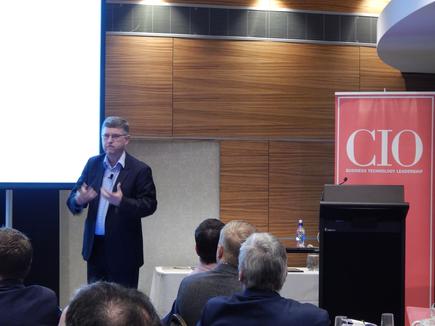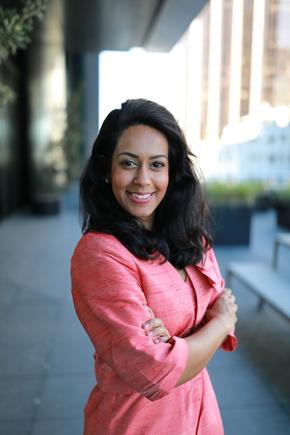“The successful graduates get a chance to understand the important role the public service plays in the life of every New Zealander. They get to influence the way digital and other technology changes are being taken up across the public service,” says Graeme Osborne, general manager system transformation, Department of Internal Affairs.
The successful candidates to the GovTech Talent programme will spend 24 months working in three of the participating government agencies, spending eight months in each.
This year, the Ministry of Justice joins the list of participating agencies - Accident Compensation Corporation, Department of Internal Affairs, Inland Revenue, Ministry of Business, Innovation and Employment, Ministry for Primary Industries, Ministry of Education, New Zealand Transport Agency and Statistics New Zealand.

We can give young people the opportunity to make a difference
Applications are open to everyone that has recently graduated (up to 24 months), or due to graduate in 2018, and available to work from February 2019.
The deadline for applications is on August 10.
Osborne, who is part of the team at the office of the government chief digital officer, leads the graduate programme on behalf of the agencies involved.
He believes public service and the work they do fit into the culture of a lot of young people today.
“We can give young people the opportunity to make a difference,” he says.
At the same time, the government agencies benefit from taking in the graduates. “They are amazing reverse mentors,” providing ways that allow us to adopt technology more quickly, says Osborne.
This is affirmed by Chris Buxton, chief digital officer at Stats NZ.
“We have been part of the graduate programme since its inception and experienced a couple of rotations,” says Buxton. “Each time we have been blown away by the enthusiasm and adaptability of the graduates.”
“They have been part of our future thinking programs of work, bringing different insights that challenge our thinking.”

The graduates bring different insights that challenge our thinking
“As one of the world’s top digital nations, it’s essential that we help develop talented individuals who want to shape the digital future of government – for the benefit of all New Zealanders,” says Nuwanthie Samarakone, founder and CEO of Ice Professionals, which has designed the programme.
“Heading into the digital future, we need to think about the role of government in ensuring we have an inclusive and equitable society. Government needs to help communities adjust to the coming changes and support everybody to adapt to the new world.”
Although technology supports change, ‘digital’ is a change in thinking to understand the customer, redesign business processes and integrate services across agencies, she says.
“With graduates’ differing degree backgrounds, it creates an excellent environment to create different ways of thinking.”
She says each graduate will be supported by a mentor who will help them reach their goals and potential. These mentors are thought-leaders and senior managers working in the Government’s digital arena, she adds.
The programme started in 2016.

One of the key learnings from the time of the launch of this programme is how the public sector is ever evolving too, and therefore the programme has had to adapt, pivot and change the skills and areas of learnings to better suit the agencies and the talent pipeline, Samarakone tells CIO New Zealand.
Furthermore, the expectations of the students coming through is also changing as part of the generational shift in the workforce, she adds.
“Ensuring the people leaders are equipped to manage the cohorts of students alongside the organisations expectations has been vital.”
She says update of the programme has been positive over the past two years. “It’s both humbling and reassuring that we need to continue to invest and build talent for the future of the public sector.”
Get the latest on digital transformation: Sign up for CIO newsletters for regular updates on CIO news, career tips, views and events. Follow CIO New Zealand on Twitter:@cio_nz
Send news tips and comments to divina_paredes@idg.co.nz @divinap

